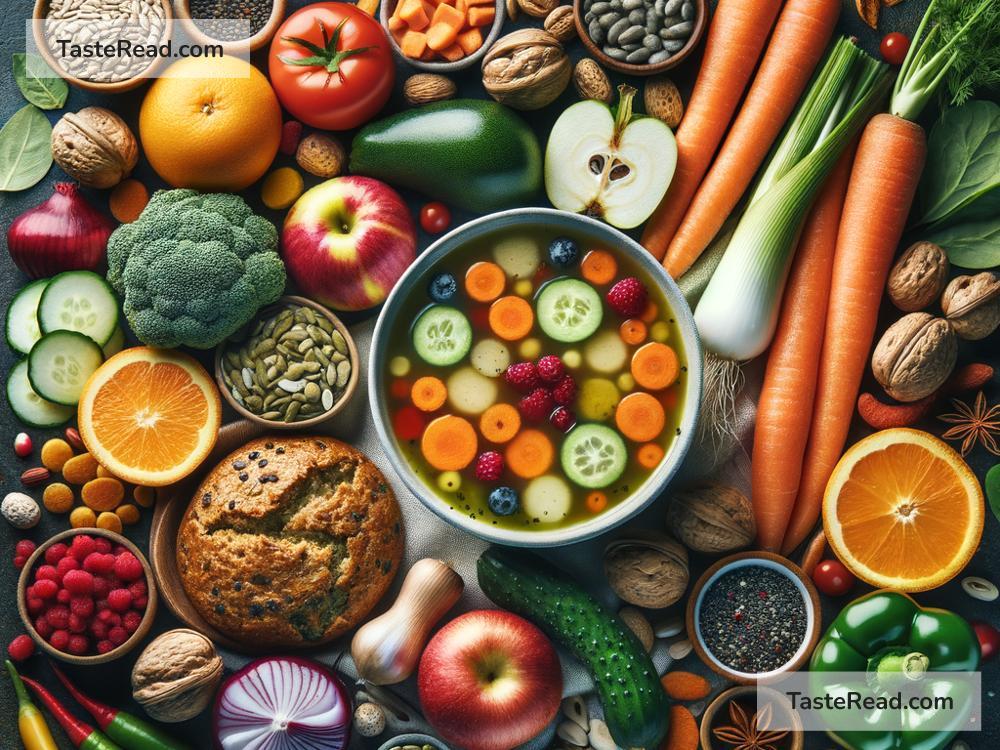The Role of Nutrition in Supporting Respiratory Health
Breathing is one of the most important things our bodies do every day. Without oxygen, we wouldn’t be able to survive. Our lungs work hard to bring air into our bodies, helping us to breathe and giving us energy to live our lives. But just like any other part of our body, our lungs need care and support to stay healthy—and nutrition plays a big role! In this blog, we’ll explore how the food we eat can help keep our respiratory system strong, how certain nutrients benefit lung health, and simple tips for eating better to breathe easier.
How Nutrition Affects Lung Health
The respiratory system includes the lungs, airways, and muscles that help us breathe. When we inhale, oxygen enters our bloodstream, and when we exhale, carbon dioxide—a waste product—is released. This process happens hundreds of times a day, and the health of our lungs makes it possible.
The foods we eat provide nutrients that fuel our bodies, including our lungs. Good nutrition can help reduce inflammation, improve lung function, and support the immune system, which defends our respiratory system against infections. On the other hand, a poor diet—full of processed foods, sugary drinks, and unhealthy fats—can worsen inflammation and weaken your lungs over time.
Key Nutrients for Respiratory Health
Certain nutrients stand out when it comes to helping your lungs and respiratory system function well. Let’s look at the most important ones:
- Antioxidants
Antioxidants protect your body from damage caused by harmful molecules called free radicals. Free radicals can harm cells in your lungs and worsen conditions like asthma and chronic obstructive pulmonary disease (COPD). Foods rich in antioxidants include: - Vitamin C: Found in oranges, strawberries, bell peppers, and broccoli, vitamin C helps reduce inflammation and supports your immune system.
- Vitamin E: Almonds, sunflower seeds, and spinach are packed with vitamin E, which helps protect lung tissue.
-
Beta-carotene: Sweet potatoes, carrots, and leafy greens contain beta-carotene, which your body converts into vitamin A to keep your respiratory system healthy.
-
Omega-3 Fatty Acids
Omega-3s are healthy fats found in fish like salmon, walnuts, and flaxseeds. These fats have anti-inflammatory properties that can help protect your lungs from swelling and irritation. Studies have shown that omega-3s may be especially helpful for people with asthma. -
Magnesium
This mineral plays a key role in relaxing the muscles that surround your airways. Foods high in magnesium include nuts, seeds, avocados, and green leafy vegetables. If you’re prone to asthma attacks or feel short of breath, magnesium may help ease your symptoms. -
Vitamin D
Vitamin D helps strengthen your immune system and may reduce the risk of respiratory infections. Many people get vitamin D from sunlight, but you can also find it in foods like eggs, fortified milk, and fatty fish. -
Fiber
Fiber, found in fruits, vegetables, whole grains, and beans, not only improves digestion but also supports lung health. High-fiber diets have been linked to better respiratory function and reduced risk of lung-related conditions.
Foods to Avoid for Lung Health
While there are many foods that boost lung health, some can have the opposite effect. Here are a few to watch out for:
-
Processed and Fried Foods
These often contain unhealthy fats and chemicals that can increase inflammation in the lungs and make breathing harder. Chips, fast food, and baked goods are common culprits. -
Sugary Drinks
Sodas and other drinks high in sugar can increase your risk of inflammation and weight gain, which puts more pressure on your lungs. -
Excess Salt
Eating too much salt may lead to fluid retention, which can make breathing feel more difficult, especially for people with asthma or COPD. Try to limit processed foods, which often contain hidden salt.
Simple Tips for Better Respiratory Nutrition
Supporting your respiratory health doesn’t have to be complicated. Making small changes to your diet can make a big difference. Here are some easy tips:
-
Eat More Fruits and Vegetables
Aim to eat a variety of colorful fruits and vegetables every day. These foods are packed with antioxidants, vitamins, and fiber. Add spinach and kale to your meals, snack on berries, or enjoy an orange for dessert. -
Choose Whole Grains
Switch from white bread and rice to whole-grain versions like quinoa, brown rice, and oats. Whole grains are higher in fiber, which supports lung health. -
Include Healthy Fats
Add sources of omega-3 fatty acids like salmon, flaxseeds, and walnuts to your meals. Even a small handful of nuts can be a great snack for lung health. -
Stay Hydrated
Drinking plenty of water helps thin mucus in the lungs, making it easier to breathe. Aim for 6–8 glasses of water a day. -
Cut Back on Junk Food
Reduce processed and fried foods in your diet. Try baking, grilling, or steaming your meals instead of frying them.
Conclusion
Good nutrition is essential for maintaining healthy lungs. Your respiratory system works hard, so it’s important to fuel it with foods that reduce inflammation, strengthen your immune system, and support proper lung function. By eating a balanced diet rich in fruits, vegetables, whole grains, and healthy fats, you can breathe easier and protect your respiratory health for years to come.
Your diet is one of the simplest ways to care for your lungs. So the next time you sit down for a meal, think about how your food is helping you stay strong and healthy—and giving your lungs the support they deserve!


